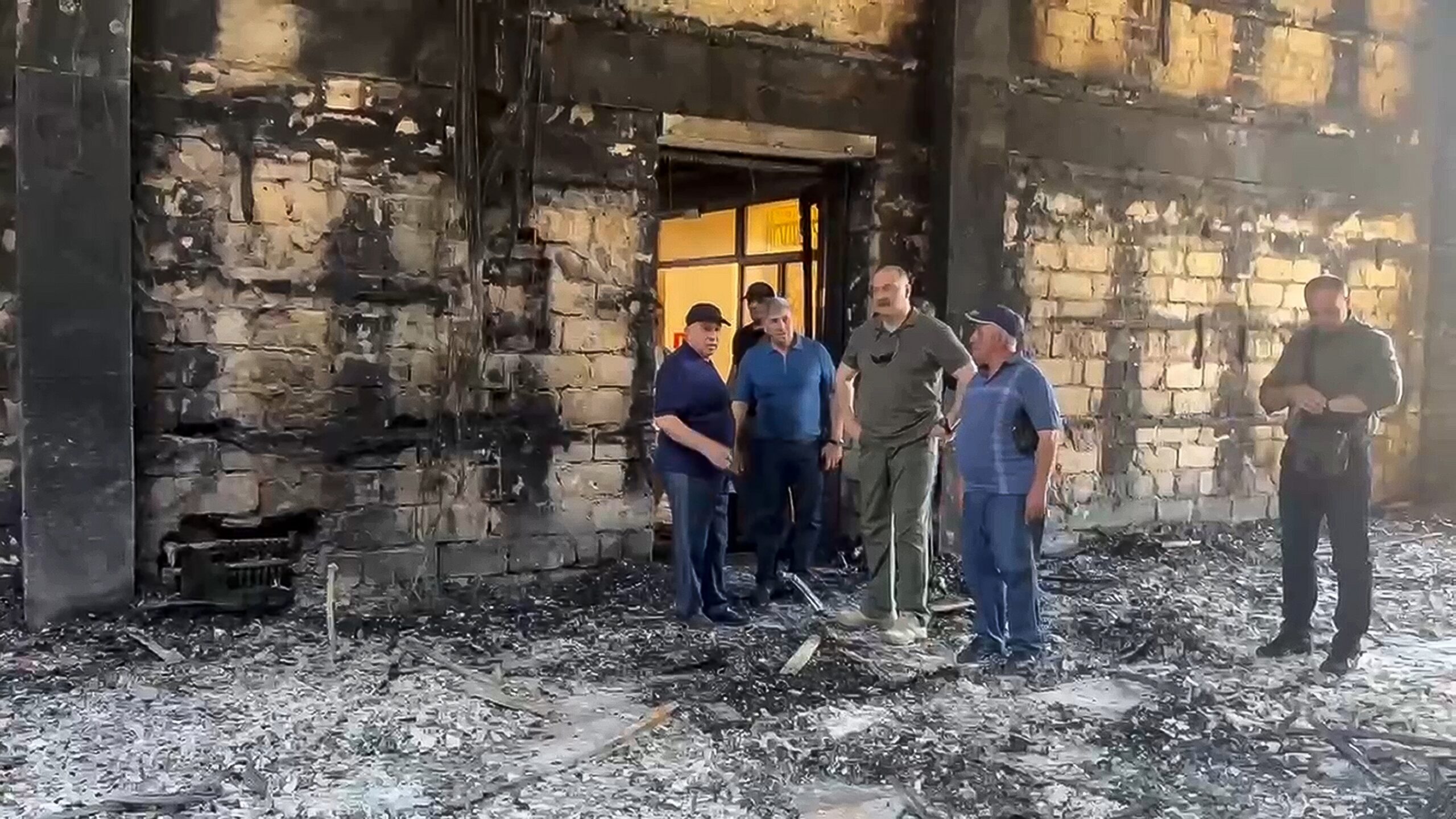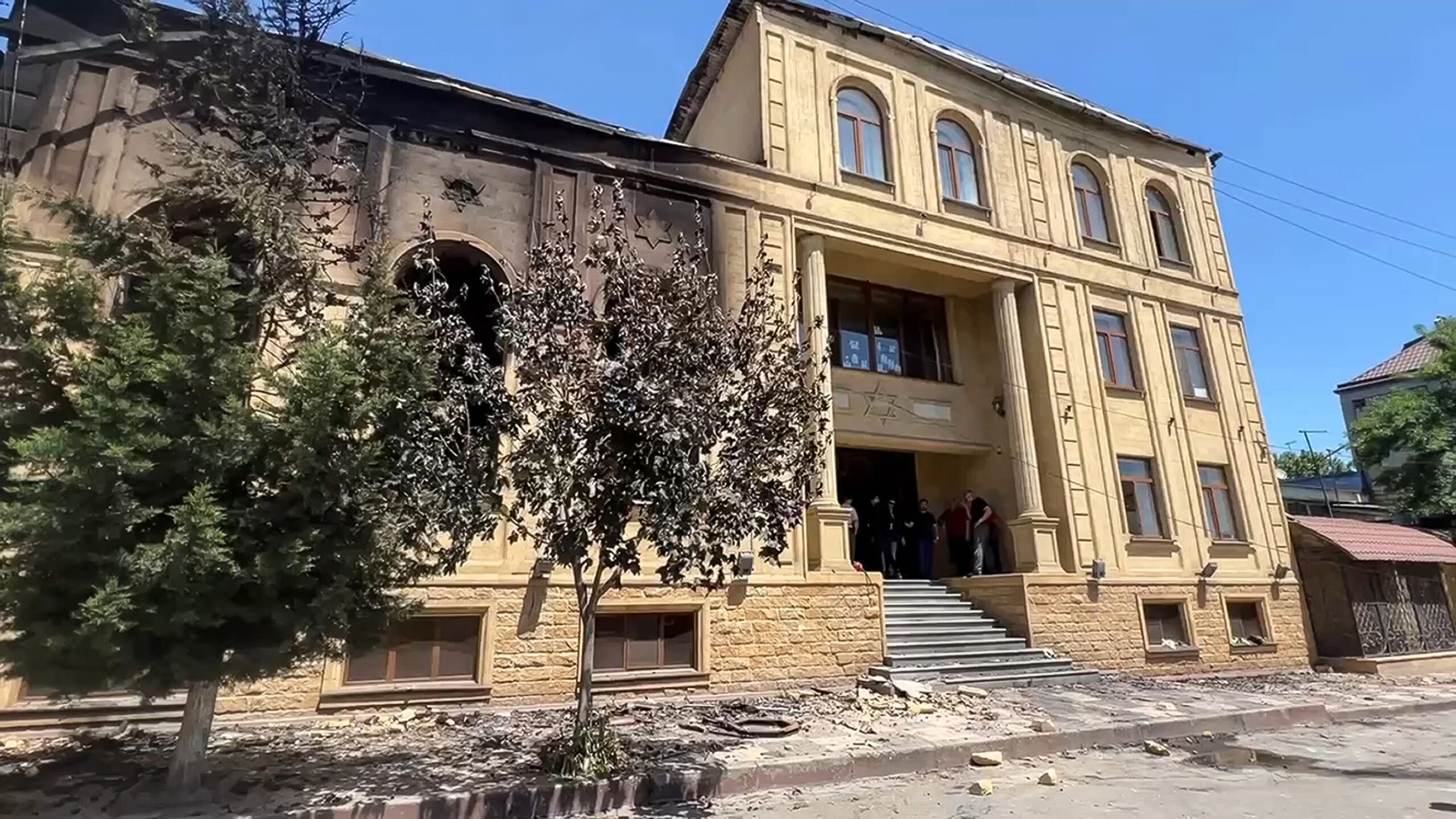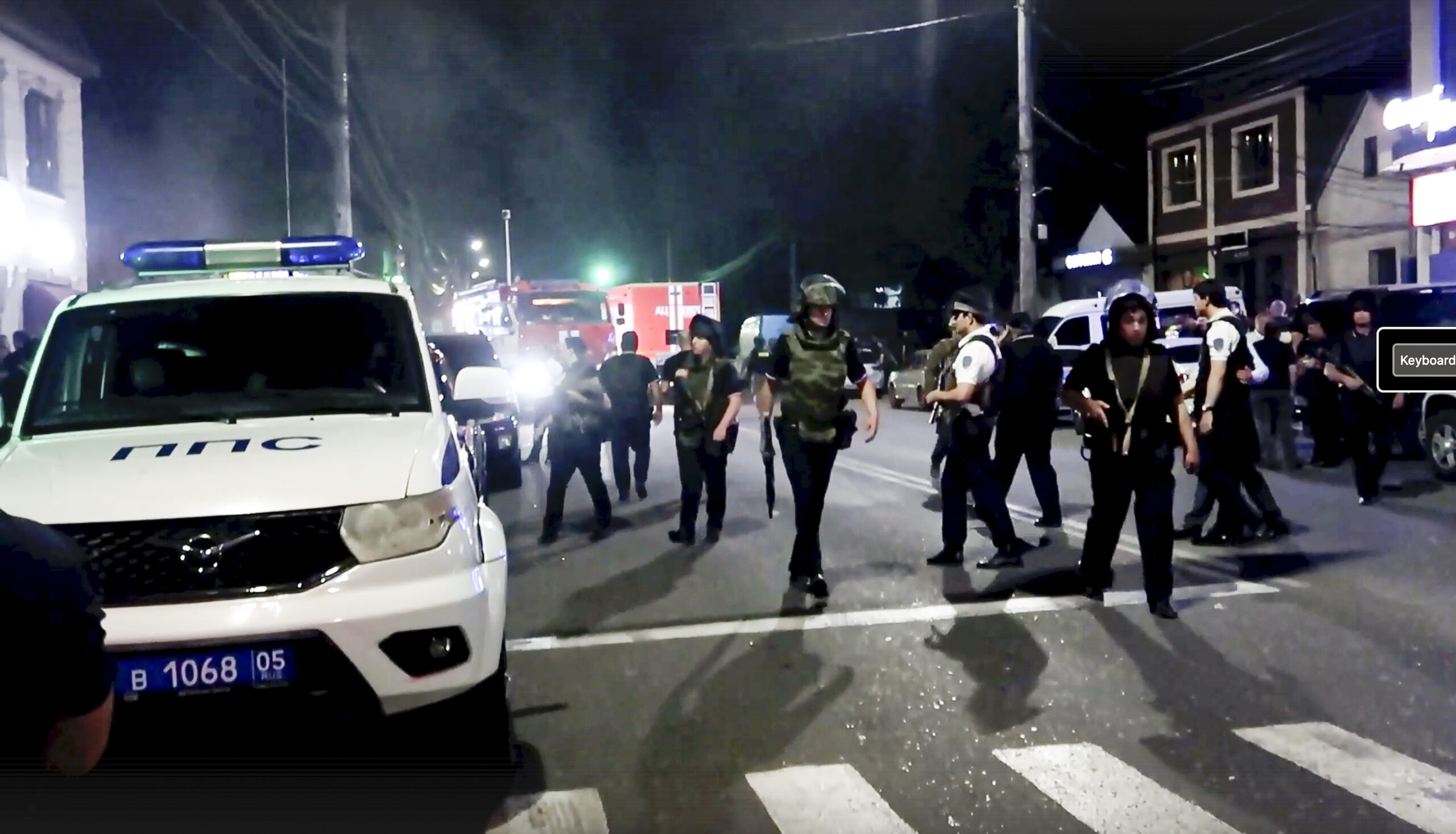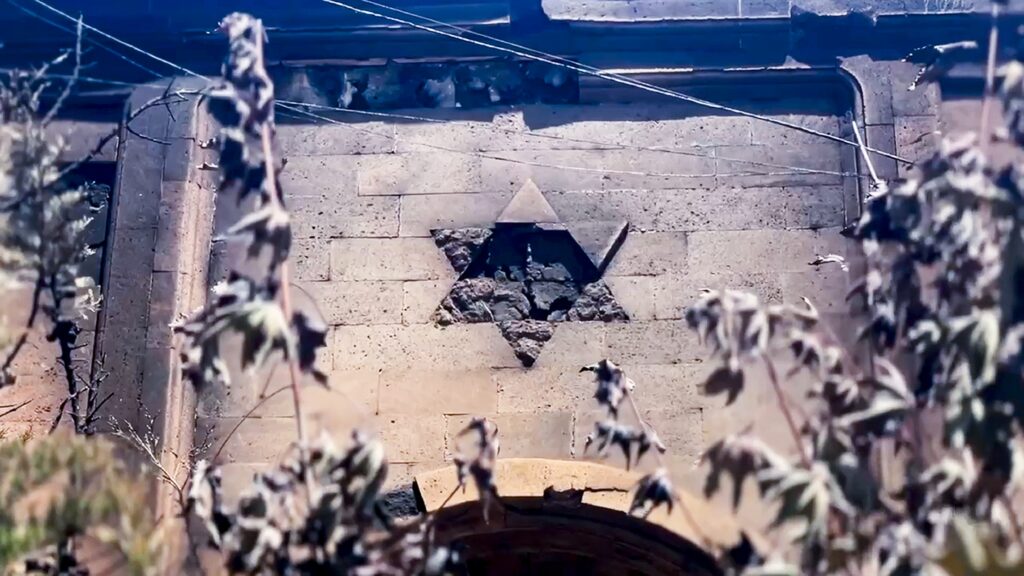Russia’s southern region of Dagestan held the first of three days of mourning Monday following a rampage by Islamic militants who authorities say killed 20 people, most of them police, and attacked houses of worship in apparently coordinated assaults in two cities.
Sunday’s violence in Dagestan’s regional capital of Makhachkala and nearby Derbent was the latest that officials blamed on Islamic extremists in the predominantly Muslim region in the North Caucasus, as well as the deadliest in Russia since March, when gunmen opened fire at a concert in suburban Moscow, killing 145 people.
The affiliate of the Islamic State group in Afghanistan that claimed responsibility for March’s raid quickly praised the attack in Dagestan, saying it was conducted by “brothers in the Caucasus who showed that they are still strong.”

The Washington-based Institute for the Study of War argued that the Islamic State group’s North Caucasus branch, Vilayat Kavkaz, likely was behind the attack, describing it as “complex and coordinated.”
Dagestan Gov. Sergei Melikov blamed members of Islamic “sleeper cells” directed from abroad, but didn’t give any other details. He said in a video statement that the assailants aimed at “sowing panic and fear,” and attempted to link the attack to Moscow’s military action in Ukraine — but also provided no evidence.
President Vladimir Putin had sought to blame the March attack on Ukraine, again without evidence and despite the claim of responsibility by the Islamic State affiliate. Kyiv has vehemently denied any involvement.

Kremlin spokesman Dmitry Peskov said Putin has received reports on Sunday’s attacks and efforts to help the victims.
The Investigative Committee, the country’s top state criminal investigation agency, said all five attackers were killed. Of the 20 people killed, at least 15 were police.
Medical authorities in Dagestan said at least 46 people were injured. Of those, at least 13 were police, with four officers hospitalized in grave condition.

Among the dead was the Rev. Nikolai Kotelnikov, a 66-year-old Russian Orthodox priest at a church in Derbent. The attackers slit his throat before setting fire to the church, according to Shamil Khadulayev, deputy head of a local public oversight body. The attack came as the Orthodox faithful celebrated Pentecost, also known as Trinity Sunday.
The Kele-Numaz synagogue in Derbent also was set ablaze.
Shortly after the attacks in Derbent, militants fired at a police post in Makhachkala and attacked a Russian Orthodox Church and a synagogue there before being hunted down and killed by special forces.
Russian news reports said the attackers included the two sons and a nephew of Magomed Omarov, the head of the main Kremlin’s party United Russia’s regional branch in Dagestan. Omarov was detained by police for interrogation, and United Russia quickly dismissed him from its ranks.
In the early 2000s, Dagestan saw near-daily attacks on police and other authorities that was blamed on militant extremists. After the emergence of the Islamic State group, many residents of the region joined it in Syria and Iraq.
The violence in Dagestan has abated in recent years, but in a sign that extremist sentiments still run high in the region, mobs rioted at an airport there in October, targeting a flight from Israel. More than 20 people were hurt — none of them Israelis — when hundreds of men, some carrying banners with antisemitic slogans, rushed onto the tarmac, chased passengers and threw stones at police.
The airport rampage challenged the Kremlin’s narrative that ethnic and religious groups coexist in harmony in Russia.
After March’s Moscow concert hall attack, Russia’s top security agency reported that it had broken up what it called a “terrorist cell” in southern Russia and arrested four of its members who had provided weapons and cash to suspected attackers in Moscow.
Harold Chambers, political and security analyst specializing in the North Caucasus, noted the authorities’ response to Sunday’s attack “was significantly more than we have seen in the past, but still lacking, particularly with response time.”
“They were definitely caught off guard by this attack,” he said. “What we’re seeing here is still this disconnect between Russian counterterrorism capability and what the terrorists capability is inside of Russia.”
(AP)











